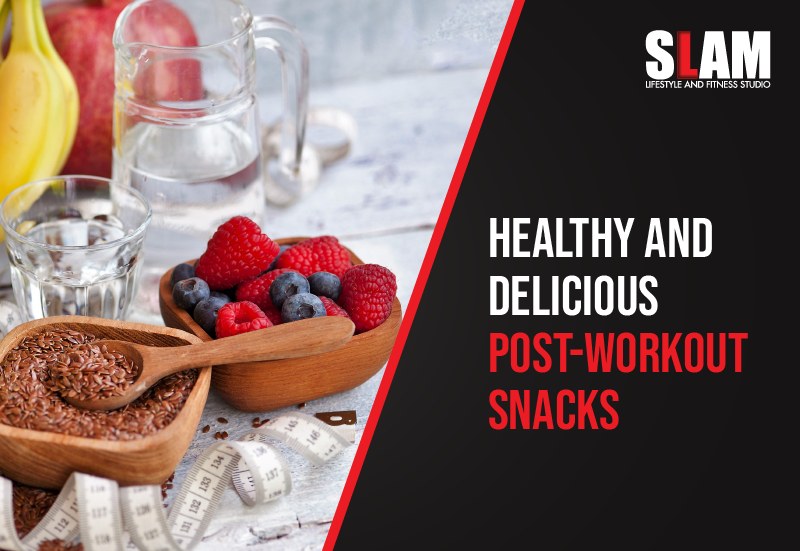Introduction
Are you looking to boost your metabolism and unlock a healthier, more energetic version of yourself? Look no further. Metabolism, the body’s process of converting food into energy, plays a crucial role in weight management and overall well-being.
This blog will elaborate on effective strategies and lifestyle changes that can naturally enhance your body’s metabolism.
By understanding the intricacies of metabolism and implementing these methods, you can optimise your body’s calorie-burning potential, support weight loss or maintenance, and experience a newfound vitality. Let’s dive into this exciting learning journey.
Understanding Metabolism

The two components of metabolism, the process through which the body transforms food into energy, are the basal metabolic rate (BMR) and the level of physical activity (PAL).
BMR is a measure of the energy required to keep vital body processes like breathing and organ operation going while at rest. The extra energy used up during physical activity and exercise is taken into consideration by PAL.
Numerous elements affect metabolism. Due to changes in hormones and a drop in muscle mass as people age, metabolism tends to slow down.
The efficiency of using energy and storing fat is influenced by genes regulating metabolism. Since muscle tissue needs more energy to maintain itself than fat tissue, body composition impacts metabolism, specifically the ratio of muscle to fat.
The balance of hormones, particularly thyroid and sex hormones, can also affect metabolic rate. It’s essential to comprehend these aspects if you want to manage your weight and promote general wellness.
Eat Healthy for Faster Metabolism

A healthy metabolism is strongly supported by optimal nutrition. A diet rich in nutrients, including lean protein, whole grains, fruits, vegetables, and healthy fats, must be well-balanced. Lean protein helps to maintain and repair muscles, which raises metabolic rate.
Whole grains give you long-lasting energy and fibre, which helps with digestion and prevents blood sugar spikes.
Essential vitamins, minerals, and antioxidants are present in fruits and vegetables, supporting healthy metabolic function. Healthy fats, including those in avocados and almonds, assist in controlling hormone production and encourage satiety.
Moreover, some foods have a thermic impact, which increases calorie burning because it takes more energy to digest them. The largest thermic effect is found in high-protein diets since they need more energy to digest and absorb.
Legumes and vegetables, which are high in fibre, also contribute to the thermic impact by facilitating effective digestion and nutrient absorption.
Timing and frequency of meals, in addition to food selection, are essential for a healthy metabolism. Regularly consuming well-balanced meals throughout the day helps avoid extended fasting intervals, which can impede metabolism.
It maintains a steady blood sugar level and keeps the body nourished, minimising energy dips and binge eating.
Exercise and Physical Activity

The importance of resistance training in boosting metabolism cannot be overstated. Maintaining lean muscle mass increases metabolism even when you’re at rest since muscle tissue needs more energy to be alive than fat tissue. The body expends more energy as muscles get bigger and stronger, which raises the basal metabolic rate.
Cardiovascular exercises like jogging, swimming, or cycling also aid calorie burning. These aerobic exercises raise heart rate and boost oxygen consumption, which causes calorie burning during the workout.
Additionally, aerobic exercise increases metabolism, resulting in the “afterburn” effect, which causes additional calorie burning even after the workout.
Maintaining an active metabolism requires incorporating daily movement. Take the stairs instead of the lift, walk short distances instead of driving, or participate in hobbies and sports to raise your general level of activity. These activities help you burn more calories and maintain a healthy metabolism all day.
Lifestyle Factors for a Healthy Metabolism
By altering the hormones responsible for controlling appetite and energy balance, inadequate sleep can cause metabolism to malfunction. Lack of sleep can result in increased hunger, unhealthy food cravings, and a diminished ability to make good decisions.
It is advised to build a peaceful evening ritual, optimise the sleep environment, restrict exposure to electronic devices before bed, avoid stimulants like caffeine, and consume too much alcohol in order to improve sleep quality.
It’s important to stay hydrated to assist metabolic processes. Numerous metabolic functions, such as digestion, food absorption, and waste removal, necessitate the presence of water. It’s important to maintain maximum metabolic efficiency by drinking enough water.
Generally speaking, consuming enough water throughout the day is advised, especially when engaging in physical activity or hot weather.
Chronic stress alters metabolism negatively by raising cortisol levels, which can result in abnormalities in blood sugar control and fat storage.
Maintaining a healthy metabolism requires effective stress management. Reduce stress levels and support a more balanced metabolism by using techniques like yoga, meditation, deep breathing exercises, and relaxing hobbies or activities.
Other Metabolism-Boosting Tips
Including metabolism-enhancing foods in your diet, such as green tea or chilli peppers, may be advantageous. Capsaicin, a substance found in chilli peppers, can speed up metabolism and improve fat burning.
Consuming green tea, especially its active ingredient called catechins, may promote weight loss by enhancing thermogenesis and oxidising fat.
The process of subjecting the body to cold temperatures is referred to as cold exposure or cold thermogenesis. This causes the body to produce heat, which causes the metabolism to rise in order to maintain body temperature.
Spending time in chilly places or taking cold showers can all result in cold exposure, which may increase metabolic rate and calorie burning.
Crash diets must be avoided since severe calorie limitations might impede metabolism. A severe calorie restriction tells the body to preserve energy, which lowers the metabolic rate.
Instead, a sustainable and balanced dietary strategy supports healthy metabolism and long-term weight management.
SLAM Fitness Studio
At SLAM Fitness, we are dedicated to facilitating a healthy physical transformation journey through a combination of tailored workouts and a balanced diet.
Our skilled trainers provide expert guidance and support, designing personalised exercise programs to suit individual needs and goals. We emphasise the importance of proper form and technique to maximise results while minimising the risk of injury.
Alongside our workout programs, we offer nutritional guidance, promoting a well-rounded approach to overall wellness.
At SLAM Fitness, our mission is to empower individuals to achieve their fitness goals, improve their strength and endurance, and transform their bodies in a sustainable and healthy manner.
Conclusion
Focus on a balanced diet, regular exercise, and lifestyle decisions to naturally raise your body’s metabolism. Choose a well-balanced diet of fruits, vegetables, whole grains, lean meats, and healthy fats.
By doing cardiovascular and strength training, build lean muscle mass and increase calorie burning. You may stay active all day by adding exercise to your daily routine.
But getting enough sleep, being hydrated, and controlling your stress first. Utilise the potential of metabolism-enhancing nutrients like green tea and chilli peppers.
Accept cold thermogenesis and stay away from extreme diets. Implementing these natural techniques will boost your metabolism, help you reach your wellness objectives, and provide you access to a full, active life. Start now on the path to a healthy you!
FAQs
- What causes fast metabolism?
Factors that can contribute to a fast metabolism include genetics, higher levels of muscle mass, physical activity and exercise, certain medical conditions (e.g., hyperthyroidism), and the consumption of certain substances (e.g., caffeine).
- What are fat-burning foods?
Foods that are said to increase metabolism and facilitate the body’s fat-burning process are known as fat-burning foods. Lean proteins, whole grains, berries, almonds, green tea, chilli peppers, grapefruit, high-fibre diets, and foods high in protein are a few examples.
- Do metabolism boosters work?
Metabolism boosters, such as certain supplements or foods, may temporarily affect metabolism. However, their impact is often modest, and long-term changes in metabolism are best achieved through a healthy diet, regular exercise, and overall lifestyle choices.
- How can I speed up my metabolism naturally?
Focus on a well-balanced diet full of lean proteins, whole grains, fruits, veggies, and healthy fats to naturally boost your metabolism. Regular exercise should include both aerobic and strength-training exercises. Prioritise getting enough sleep, maintain hydration, control your stress, and stay away from crash diets.
- What foods increase metabolism?
Chilli peppers, green tea, coffee, lean proteins, whole grains, fruits, and vegetables, as well as diets high in fibre and omega-3 fatty acids, all have the potential to speed up metabolism. However, in comparison to other lifestyle factors, their influence on metabolism is often minimal.
- What is the 2 2 2 method for metabolism?
According to the 2 2 2 technique, dietitians advise a six-week programme that includes two weeks of carb- and protein-heavy two meals per day, followed by four weeks of alternating between keto and carb-loading.



